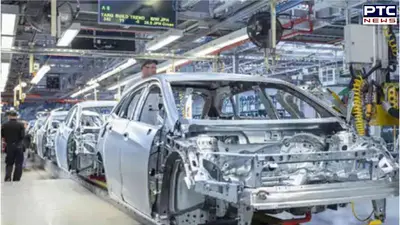PTC Web Desk: China’s sweeping export ban on seven rare earth materials—critical for manufacturing in automotive, aerospace, and electronics industries—has started creating shockwaves across the global supply chain. Key automakers like Suzuki, Ford, BMW, Mercedes, and Nissan have been forced to halt or scale down production due to shortages. The Indian government is also mobilising efforts, preparing to send a high-level delegation to China next week to negotiate faster shipments of these critical materials.
Suzuki halts Swift production in Japan
Suzuki Motor Corporation, parent of Maruti Suzuki, suspended production of its flagship model Swift in Japan starting May 26, though its sports variant remains unaffected. While Suzuki has not officially disclosed the cause, reports attribute the stoppage to shortages of rare earth-based components due to China’s export restrictions.
Global auto giants feeling the pinch
Ford has temporarily shut down its Explorer SUV assembly line in Chicago at the end of May.
Nissan’s CEO Ivan Espinosa confirmed the company is working closely with the Japanese government to secure alternative supply lines, stating, “We must maintain supply flexibility for the future.”
Mercedes-Benz production chief Joerg Burzer revealed the company is holding continuous discussions with suppliers and is considering stockpiling critical components.
BMW acknowledged that disruptions have already begun in its supply chains, prompting real-time monitoring and vendor negotiations to minimise impact.
India’s diplomatic and industry push
India will send a high-level delegation next week, comprising members from SIAM (Society of Indian Automobile Manufacturers) and ACMA (Automotive Component Manufacturers Association of India). The delegation will engage with Chinese authorities to request expedited approval and shipment of critical rare earth supplies vital to India’s auto industry.
The Ministry of External Affairs is also working via the Indian Embassy in Beijing to ease bottlenecks and restore normal supply chains.
What are 7 rare earth materials under restriction?
According to recent reports and expert summaries, these are the rare earth materials whose export China has now restricted:
Samarium: Maintains strength at high temperatures. Used in: guided missile systems, turbines, electric motors, and bone cancer treatments.
Gadolinium: Acts as a catalyst in nuclear reactors. Used in: MRI scans, TV screens, and fluoroscopy.
Terbium: Produces green light for screens. Used in: TVs, monitors, smartphones, sonar systems, sensors, and hi-fi speakers.
Dysprosium: Enhances magnet strength for nuclear reactors. Produces blue and white light.
Lutetium: Important in gasoline and diesel refinement. Also used in cancer research.
Scandium: One of the lightest rare earths. Used in: aircraft parts, weapons, and semiconductors.
Yttrium: Extracted in larger amounts than others. Used in: PET scan filters, microwave filters, and radar systems.
China controls 70% of global rare earth mining and 90% of processing. On April 4, 2025, China announced that these seven materials—and the specialised magnets made from them—can only be exported under special permits, accompanied by end-use certificates confirming non-military usage.
